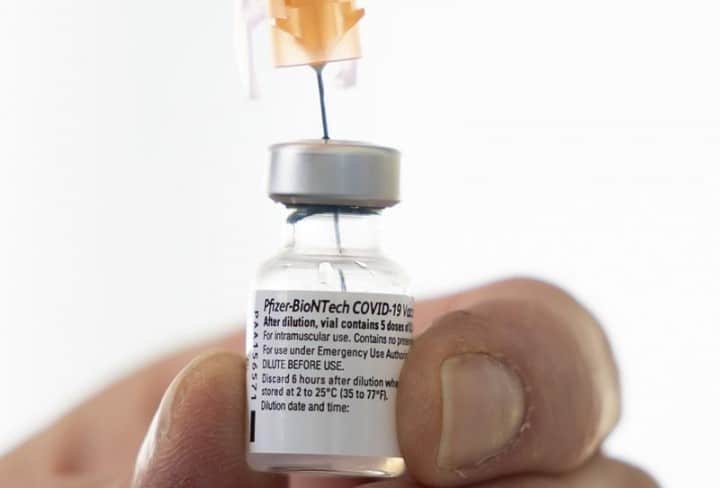Coming week will see trickle of COVID-19 vaccine doses before floodgates open
Published March 15, 2021 at 11:49 am

OTTAWA — The Public Health Agency of Canada is expecting a smaller-than-normal shipment of COVID-19 vaccines this week, with fewer than 445,000 doses of Pfizer-BioNTech shots scheduled for delivery over the next seven days.
Yet that seeming trickle is set to explode into a full-blown flood starting the week of March 22 as the companies dramatically ramp up their deliveries and other pharmaceutical firms start making good on their own promised shipments.
The Public Health Agency says this coming week will be the last in which Canada will receive fewer than 1 million doses over a seven-day period. Pfizer and BioNTech alone are on tap to deliver more than that each week for the foreseeable future.
Canada is also expected to start receiving more shots of the Oxford-AstraZeneca vaccine starting in April, as well as Johnson & Johnson’s one-dose inoculation. Those are in addition to the bi-weekly delivery of doses from Moderna, the next of which is scheduled for the week of March 22.
Public Procurement Minister Anita Anand said on Friday that Canada is on track to receive 7 million vaccine doses from the various companies by the end of April, with a total of 36.5 million delivered by the end of June and 118 million before Sept. 30.
This week’s expected lull comes amid a report that more than 3 million COVID-19 vaccine doses had been administered in Canada as of Sunday, according to COVID19tracker.ca, with more than six per cent of the population having received a dose.
The coming week is also expected to see Canada’s National Advisory Committee on Immunization release new guidance on the AstraZeneca vaccine for seniors after initially discouraging their use for older residents.
Those vaccines have been under the spotlight over the past week amid concerns within some European countries about alleged links to blood clots, though Canadian officials have said there is no scientific evidence to support such a link.
“There’s not a good biological explanation about why a vaccine of this type, injected into a muscle, would cause that kind of adverse event,” Health Canada’s chief medical adviser Dr. Supriya Sharma told The Canadian Press last week.
Denmark, Iceland, Norway and Bulgaria are among almost a dozen European nations that paused the use of AstraZeneca’s vaccine last week — either entirely or specific batches — after reports of some patients developing blood clots afterward. Ireland joined the list on Sunday.
None of those countries’ health officials said there was evidence of a link, but rather they were pausing use of the product out of an abundance of caution pending a review.
AstraZeneca released a statement on Sunday saying a review of 17 million patients who received the shot in Europe and the United Kingdom showed no elevated risk of blood clotting.
Ann Taylor, the company’s chief medical officer, said there’s no increased risk of either pulmonary embolism, deep vein thrombosis or thrombocytopenia in any age group, gender, batch of vaccines or country.
The company said there are reports of 15 patients experiencing deep-vein thrombosis and 22 pulmonary embolisms as of March 8, which is much lower than what would occur naturally in a population of more than 17 million people.
Germany, France, Poland, Nigeria and the United Kingdom are all among the countries joining Canada in sticking with AstraZeneca injections.
Lee Berthiaume, The Canadian Press
INsauga's Editorial Standards and Policies